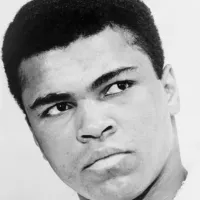Bangladesh, officially the People's Republic of Bangladesh, is a South Asian nation. It's the eighth-most populous and one of the most densely populated countries globally, with over 171 million people residing within its 148,460 square kilometers. It shares borders with India and Myanmar, and its southern coast lines the Bay of Bengal. Dhaka serves as the capital and largest city, acting as the political, financial, and cultural hub. Chittagong is the second-largest city and a major port.
February 1905: Record low temperature in Dinajpur
On 3 February 1905, Dinajpur recorded the lowest air temperature in Bangladesh's history, at 1.1 °C (34.0 °F).
1905: Use of "Bangladesh" in Bengali patriotic song
In 1905, the term Bangladesh was used in Bengali patriotic songs, such as Aaji Bangladesher Hridoy by Rabindranath Tagore.
1913: Picture House Operation
During the year between 1913 and 1914, Picture House, the first permanent cinema in Dhaka, began its operation.
1914: Picture House Operation
During the year between 1913 and 1914, Picture House, the first permanent cinema in Dhaka, began its operation.
1921: Establishment of University of Dhaka
In 1921, the University of Dhaka, the oldest public university in Bangladesh, was established.
1929: Release of Sukumari
In 1929, Sukumari (The Good Girl) was released, marking it as the first film produced in Bangladesh.
1931: Release of Last Kiss
In 1931, Last Kiss, the first full-length feature film, was released in Bangladesh.
1932: Use of "Bangladesh" in Bengali patriotic song
In 1932, the term Bangladesh was used in Bengali patriotic songs, such as Namo Namo Namo Bangladesh Momo by Kazi Nazrul Islam.
1947: Number of Cinemas Listed
By 1947, a total of 80 cinemas were listed in Bangladesh.
1949: Formation of the All Pakistan Awami Muslim League
In 1949, the All Pakistan Awami Muslim League was formed.
1950: Enactment of land reform in East Bengal
In 1950, the East Bengal Legislative Assembly enacted land reform, abolishing the Permanent Settlement and the zamindari system.
1952: Bengali Language Movement
In 1952, the government crackdown on the Bengali language movement to establish Bengali as the official language of Pakistan spurred Bengali nationalism and pro-democracy movements.
1953: Awami Muslim League renamed Awami League
In 1953, the Awami Muslim League was renamed as a more "secular" Awami League.
1954: Dissolution of the first constituent assembly
In 1954, the first constituent assembly was dissolved and the United Front coalition won a landslide victory in the East Bengali legislative election.
1956: Release of Mukh O Mukhosh
In 1956, Mukh O Mukhosh (Face and Mask), the first Bengali-language film in East Pakistan, was released.
1957: Founding of Film Development Corporation
The Bangladesh Film Development Corporation was founded in Dhaka as the East Pakistan Film Development Corporation in 1957–1958.
1958: Martial Law imposed by Pakistan Armed Forces
In 1958, the Pakistan Armed Forces imposed martial law following a coup d'état, leading to Ayub Khan's dictatorship.
1958: Founding of Film Development Corporation
The Bangladesh Film Development Corporation was founded in Dhaka as the East Pakistan Film Development Corporation in 1957–1958.
1959: Release of Akash ar Mati
In 1959, Akash ar Mati (Sky and Earth), was released as the second Bengali-language film.
1961: Zahir Raihan's Film Kokhono Asheni
In 1961, Zahir Raihan made the film Kokhono Asheni.
1962: Introduction of new constitution and Dhaka becomes seat of National Assembly
In 1962, a new constitution was introduced, replacing the parliamentary system with a presidential system called "Basic Democracy", and Dhaka became the seat of the National Assembly of Pakistan.
1964: Zahir Raihan's Film Shangam
In 1964, Zahir Raihan made Shangam, the first color film in Pakistan.
1966: Sheikh Mujibur Rahman announces six-point movement
In 1966, Awami League leader Sheikh Mujibur Rahman announced a six-point movement for a federal parliamentary democracy.
1966: Establishment of University of Chittagong
In 1966, the University of Chittagong, which has the largest campus in Bangladesh, was established.
1969: 1969 uprising in East Pakistan
In 1969, the uprising in East Pakistan resulted in Ayub Khan's resignation, and General Yahya Khan assumed power, reintroducing martial law.
December 1970: Awami League wins elections
In December 1970, the Bengali-nationalist Awami League won 167 of 169 East Pakistani seats in the National Assembly elections.
1970: Zahir Raihan's Film Jibon Theke Neowa
In 1970, Zahir Raihan made the film Jibon Theke Neowa.
1970: Devastating cyclone in East Pakistan
In 1970, a cyclone devastated the coast of East Pakistan.
March 1971: 7 March Speech of Mujib and Operation Searchlight
In March 1971, Mujib's 7 March Speech led to a non-cooperation movement, and the Pakistani government initiated Operation Searchlight on 25 March 1971.
December 1971: Bangladesh becomes a sovereign nation
In December 1971, after a civil war and a war for independence, Bangladesh became a sovereign nation on 16 December 1971, following the surrender of Pakistani forces.
1971: Poverty rate
In 1971, the poverty rate was 80%.
1971: Problematic relationship with Pakistan
Post-independent Bangladesh has continued to have a problematic relationship with Pakistan, mainly due to its denial of the 1971 Bangladesh genocide.
November 1972: Enactment of the Constitution of Bangladesh
In November 1972, the Constitution of Bangladesh was enacted on 4 November 1972.
1972: Bangladesh joins the Commonwealth of Nations
In 1972, Bangladesh joined the Commonwealth of Nations, marking its entry into a significant international organization.
1972: Release of Ora Egaro Jon
In 1972, the first movie post-Independence, Ora Egaro Jon, was directed by Chashi Nazrul Islam and released.
1973: National Football Team Debut
In 1973, following independence, the national football team of Bangladesh made its debut.
1974: Bangladesh joins the United Nations and OIC
In 1974, Bangladesh became a member of the United Nations and also joined the Organisation of Islamic Cooperation (OIC).
1974: Famine in Bangladesh
In 1974, a large famine in Bangladesh occurred.
1975: Assassination of Mujib
In 1975, Mujib's assassination occurred following a decline in his popularity due to corruption, mismanagement, and famine.
1975: Assassination of Sheikh Mujibur Rahman
In 1975, Sheikh Mujibur Rahman, the leader of Bangladesh post-independence, was assassinated.
1975: Chittagong Hill Tracts Unrest
In 1975, the Chittagong Hill Tracts region experienced unrest and an insurgency by its indigenous people seeking autonomy.
1980: AFC Asian Cup Participation
In 1980, the national football team achieved the feat of participating in the AFC Asian Cup, becoming only the second South Asian team to do so.
1981: Assassination of Rahman
In 1981, Ziaur Rahman was assassinated.
1985: 1985 Total Fertility Rate
In 1985, Bangladesh's total fertility rate (TFR) was 5.5.
1988: Islam declared as the state religion
In 1988, Islam was declared as the state religion of Bangladesh.
1990: Forest cover in Bangladesh
In 1990, forest cover in Bangladesh was 1,920,330 hectares.
1990: Overthrow of Hussain Muhammad Ershad
In 1990, the dictatorship of Hussain Muhammad Ershad was overthrown in a mass uprising.
1991: Democratisation
In 1991, Bangladesh went through democratisation, leading to a period defined by the "Battle of the Begums".
1991: Devastating cyclone in Bangladesh
In 1991, a cyclone devastated Bangladesh, killing approximately 140,000 people.
1991: Restoration of Parliamentary Democracy
In 1991, parliamentary democracy was restored in Bangladesh, leading to a power struggle between Khaleda Zia and Sheikh Hasina.
May 1994: Ratification of the Rio Convention on Biological Diversity
Bangladesh ratified the Rio Convention on Biological Diversity on 3 May 1994.
1995: 1995 Total Fertility Rate
In 1995, Bangladesh's total fertility rate (TFR) decreased to 3.7.
1995: Enactment of the Bangladesh Environment Conservation Act
The Bangladesh Environment Conservation Act was enacted in 1995.
1996: Peak Film Production
At the industry's peak, about 80 movies were produced each year between 1996 and 2003.
1997: Parliamentary act passed to reserve seats for female candidates
In 1997, a parliamentary act was passed to reserve three seats (out of 12) in every union for female candidates.
1997: Chittagong Hill Tracts Peace Accord
In 1997, a peace accord was signed to address the unrest in the Chittagong Hill Tracts, although the region remained militarized.
September 1998: Severe flooding in Bangladesh
In September 1998, Bangladesh experienced the most severe flooding in modern history, with two-thirds of the country underwater.
1998: Bangladesh joins the Convention against Torture
In 1998, Bangladesh joined the Convention against Torture, committing to prevent and punish acts of torture.
1999: 1999 South Asian Games
In 1999, Bangladesh's most notable achievement in football included winning the South Asian Games.
1999: International Mother Language Day
In 1999, UNESCO declared the Language Movement Day as International Mother Language Day.
1999: First Cricket World Cup Participation
In 1999, the Bangladesh national cricket team participated in their first Cricket World Cup.
2002: Bangladesh and China sign Defence Cooperation Agreement
In 2002, Bangladesh and China signed a Defence Cooperation Agreement, strengthening military ties between the two nations.
2002: FIPRESCI Award for Matir Moina
In 2002, Tareque Masud was honoured by FIPRESCI at the Cannes Film Festival for his film Matir Moina (The Clay Bird).
2002: 2002 Arsenic Pollution
In 2002, it was estimated that half of the drinking water in Bangladesh was polluted with arsenic, exceeding levels of 10 micrograms per litre.
2003: Peak Film Production
At the industry's peak, about 80 movies were produced each year between 1996 and 2003.
2003: 2003 SAFF Gold Cup
In 2003, Bangladesh's most notable achievement in football included winning the SAFF Gold Cup.
2004: Formation of Anti Corruption Commission
In 2004, the Anti Corruption Commission was formed in Bangladesh to combat corruption.
2006: Activity of Anti Corruption Commission during political crisis
From 2006, the Anti Corruption Commission was active during the 2006–08 Bangladeshi political crisis, indicting many leading politicians, bureaucrats and businessmen for graft.
2007: South Asian floods in Bangladesh
In 2007, South Asian floods ravaged areas across Bangladesh, displacing five million people.
2007: National Human Rights Commission of Bangladesh set up
In 2007, the National Human Rights Commission of Bangladesh was established to protect and promote human rights in the country.
2008: Awami League returns to power
In 2008, the Awami League returned to power under Sheikh Hasina's leadership following a landslide victory in the general election.
2008: Citizenship for Stranded Pakistanis
In 2008, the Supreme Court granted citizenship to Urdu-speaking stranded Pakistanis.
2009: Electricity production
In 2009, Bangladesh increased electricity production from 5 gigawatts.
2009: Bangladesh experiencing daily blackouts
In 2009, Bangladesh was experiencing daily blackouts several times a day.
2010: Rising income inequality
According to the World Bank's bi-annual Bangladesh Development Update released in 2025, the Gini index increasing from 0.50 in 2010 to 0.53 in 2022.
2010: Musa Ibrahim Conquers Mount Everest
In 2010, Musa Ibrahim achieved the distinction of becoming the first Bangladeshi mountain climber to successfully ascend Mount Everest.
2011: 2011 Hindu Population
In the 2011 census, Hindus formed 8.54% of the population of Bangladesh.
2012: 2012 Asia Cup
In 2012, Bangladesh reached the final of the Asia Cup.
2012: Domestic spending contribution to GDP
In 2012, domestic spending generated 97.7 per cent of direct travel and tourism gross domestic product (GDP).
2013: Enactment of anti-torture law
In 2013, Bangladesh enacted its first anti-torture law, the Torture and Custodial Death (Prevention) Act.
2013: UNESCO Recognition of Jamdani
In 2013, Jamdani, a unique design on fine muslin woven on Persian motifs in Dhaka, was classified by UNESCO as an Intangible Cultural Heritage.
2014: Revision of National Biodiversity Strategy and Action Plan
As of 2014, Bangladesh was set to revise its National Biodiversity Strategy and Action Plan.
2014: Hasina wins second consecutive term
In 2014, Hasina won her second consecutive term in the general elections which were neither free nor fair.
2015: Forest area under public ownership
In 2015, 100% of the forest area in Bangladesh was reported to be under public ownership.
2015: 2015 Cricket World Cup
In 2015, Bangladesh reached the quarter-final of the Cricket World Cup.
2015: Land administration as sector with most bribery
In 2015, land administration was identified as the sector with the most bribery in Bangladesh, followed by education, police and water supply.
2016: 2016 Asia Cup
In 2016, Bangladesh reached the final of the Asia Cup.
2016: Relations with Myanmar strained
In 2016, relations with neighbouring Myanmar were severely strained after Rohingya refugees illegally entered Bangladesh.
2016: UNESCO Recognition of Mangal Shobhajatra
In 2016, the annual Mangal Shobhajatra, organized by the Faculty of Fine Arts of the University of Dhaka on Pohela Boishakh, was enlisted as an Intangible cultural heritage by UNESCO.
2017: Rohingya refugee crisis escalates
Following 2016, in 2017, the Rohingya refugee crisis escalated with over 700,000 refugees entering Bangladesh.
2017: 2017 ICC Champions Trophy
In 2017, Bangladesh reached the semi-final of the ICC Champions Trophy.
2018: 2018 Asia Cup and Women's Twenty20 Asia Cup
In 2018, Bangladesh reached the final of the Asia Cup, and the Bangladesh women's national cricket team won the Women's Twenty20 Asia Cup.
2018: Bangladesh's ranking on Corruption Perceptions Index
In 2018, Bangladesh was ranked 146th among 180 countries on Transparency International's Corruption Perceptions Index.
2018: Hasina wins third consecutive term
In 2018, Hasina won her third consecutive term in the general elections which were neither free nor fair.
2018: Job generation in Travel and Tourism sector
The World Travel and Tourism Council (WTTC) reported in 2019 that the travel and tourism industry in Bangladesh directly generated 1,180,500 jobs in 2018 or 1.9% of the country's total employment.
2019: International tourism receipts
Bangladesh's international tourism receipts in 2019 amounted to $391 million.
2019: Bangladesh ratifies UN Treaty on the Prohibition of Nuclear Weapons
In 2019, Bangladesh ratified the UN Treaty on the Prohibition of Nuclear Weapons, signaling its commitment to nuclear disarmament.
2019: Archery Gold Medals at South Asian Games
In 2019, Bangladeshi archers Ety Khatun and Roman Sana secured multiple gold medals by winning all 10 archery events, encompassing both individual and team competitions, at the South Asian Games.
2019: 2019 Air Pollution Deaths
The World Bank estimated that roughly 80,000–90,000 deaths occurred in Bangladesh due to the effects of air pollution in 2019.
2020: 2020 Maternal Mortality Rate
As of 2020, maternal mortality in Bangladesh remains high, clocking in at 123 per 100,000 live births.
2020: Forest cover in Bangladesh
In 2020, forest cover in Bangladesh was around 14% of the total land area, equivalent to 1,883,400 hectares.
2020: 2020 Under-19 Cricket World Cup
In 2020, the Bangladesh national under-19 cricket team won the men's Under-19 Cricket World Cup.
2020: First conviction under anti-torture law announced
In 2020, the first conviction under Bangladesh's anti-torture law was announced.
2020: 2020 Population Density
In 2020, the population density of Bangladesh was recorded at 1,265 people per square kilometer.
December 2021: US sanctions on Rapid Action Battalion commanders
In December 2021, the United States Department of the Treasury announced sanctions on commanders of the Rapid Action Battalion for extrajudicial killings, torture, and other human rights abuses.
2021: Estimated number of people enslaved in Bangladesh
According to the 2023 Global Slavery Index, an estimated 1.2 million people were enslaved in Bangladesh as of 2021, which is among the highest in the world.
2021: 2021 Literacy Rate
As of 2021, Bangladesh has a literacy rate of 76%: 79% for males and 71.9% for females.
2021: 2021 Healthcare Statistics
In 2021, about 2.36% of Bangladesh's total GDP was attributed to healthcare. The country had only 5.3 doctors per 10,000 people.
2021: Military budget of Bangladesh
In 2021, the military budget of Bangladesh accounted for 1.3% of GDP, amounting to US$4.3 billion.
July 2022: Bangladesh temporarily stops buying spot price LNG
In July 2022, Bangladesh temporarily stopped buying spot price LNG due to a steep price hike in the global market.
2022: 2022 Hindu Population
According to the 2022 census, Hindus constitute 7.95% of the total population of Bangladesh.
2022: Rising income inequality
According to the World Bank's bi-annual Bangladesh Development Update released in 2025, the Gini index increasing from 0.50 in 2010 to 0.53 in 2022.
2022: 2022 Life Expectancy
As of 2022, the overall life expectancy in Bangladesh at birth was 74 years (72 years for males and 76 years for females).
2022: Bangladesh achieves 100% electrification
Bangladesh achieved 100% electrification by 2022.
2022: Electricity production
In 2022, Bangladesh increased electricity production to 25.5 gigawatts.
2022: Bangladesh's ranking in the Global Peace Index
In 2022, Bangladesh was ranked 96th among 163 countries in the Global Peace Index.
2022: 2022 Census
In 2022, Bangladesh's population was recorded at 169.8 million, and the total fertility rate (TFR) was 1.9, below the sub-replacement level.
2022: 2022 Access to Drinking Water
In 2022, roughly 60% of the population of Bangladesh had access to drinking water.
2022: 2022 SAFF Women's Championship
In 2022, the Bangladesh women's national football team won the SAFF Women's Championship.
February 2023: Bangladesh restarts buying spot price LNG
In February 2023, Bangladesh restarted buying spot price LNG as prices eased.
2023: Global Slavery Index report
According to the 2023 Global Slavery Index, an estimated 1.2 million people were enslaved in Bangladesh as of 2021, which is among the highest in the world.
2023: Unemployment rate reported
As of 2023, Bangladesh had an unemployment rate of 5.1%.
2023: Service sector contribution to GDP
As of 2023, the large service sector accounts for about 51.5% of total GDP in Bangladesh.
2023: 2023 Population Statistics
As of 2023, the population of Bangladesh rose to 171.4 million, with 40% living in urban areas. The median age was roughly 28 years, with 26% of the population aged 14 or younger and 6% aged 65 and above.
2023: 2023 U-19 Asia Cup
In 2023, the Bangladesh national under-19 cricket team won the U-19 Asia cup.
2023: Repeal and replacement of the Digital Security Act
In 2023, the widely criticised Digital Security Act was repealed and replaced by the Cyber Security Act.
August 2024: Student-led mass uprising and interim government formation
In August 2024, a student-led mass uprising resulted in Sheikh Hasina's overthrow, and an interim government led by Nobel laureate Muhammad Yunus was formed.
August 2024: Hasina Forced to resign and an Interim Government Formed
In August 2024, following a student-led mass uprising, Hasina was forced to resign and flee to India on 5 August 2024. An interim government was formed on 8 August 2024, with Nobel laureate Muhammad Yunus as the Chief Adviser.
November 2024: Cellphone subscribers
At the end of November 2024, the telecommunications industry in Bangladesh reported 188.78 million cellphone subscribers.
2024: 2024 Global Hunger Index Ranking
Bangladesh was ranked 84th out of the 127 countries listed in the 2024 Global Hunger Index.
2024: 2024 U-19 Asia Cup
In 2024, the Bangladesh national under-19 cricket team won the U-19 Asia cup consecutively.
2024: 2024 SAFF Women's Championship
In 2024, the Bangladesh women's national football team won the SAFF Women's Championship consecutively.
2024: Remittances contributed by the Bangladeshi diaspora
In 2024, the Bangladeshi diaspora contributed roughly $27 billion in remittances.
2024: Bangladesh Armed Forces personnel strength reported
In 2024, the active personnel strength of the Bangladesh Armed Forces was around 230,000, including the Air Force (21,000) and the Navy (27,000).
2025: GDP growth projected to decline
According to the World Bank's bi-annual Bangladesh Development Update released in 2025, the country's GDP growth is projected to decline to 4% in FY2025 due to subdued investment and weak industrial activity, before rising to 5.5% in FY2026.
2025: 2025 World Press Freedom Index Ranking
Bangladesh ranked 149th out of the 180 countries listed in the 2025 World Press Freedom Index, among the lowest rankings in the world.
2025: Rooppur Nuclear Power Plant unit expected to be operational
The first unit of the Rooppur Nuclear Power Plant is expected to go into operation in 2025.
2041: Electricity production plan
Bangladesh plans to produce 50 gigawatts by 2041.
2050: Projected sea level rise and displacement
It is estimated that by 2050, a three-foot rise in sea levels will inundate some 20 percent of the land and displace more than 30 million people in Bangladesh.
Mentioned in this timeline

Muhammad Ali nicknamed The Greatest was an iconic American professional...

Martial law is the imposition of military rule in place...
India officially the Republic of India is a South Asian...
Myanmar also known as Burma is a Southeast Asian country...
China officially the People's Republic of China is an East...
Africa is the second-largest and second-most populous continent home to...
Trending

25 seconds ago Malik Willis' Value Debated as Cardinals and Steelers Weigh Options in NFL.

1 minute ago Cristiano Ronaldo suffers hamstring injury; Al Nassr confirms major blow for the star.

1 minute ago Raphinha becomes the new face of Calvin Klein's underwear campaign: Exclusive photos.

1 hour ago Jules Koundé suffers injury during Copa del Rey semi-final match.

1 hour ago MGK gets a tattoo for his and Megan Fox's daughter Saga Blade.
1 hour ago FuboTV (FUBO) Gets 'Hold' Rating from Analysts: Market Performance Insights
Popular

Jesse Jackson is an American civil rights activist politician and...

Hillary Diane Rodham Clinton is a prominent American politician lawyer...

Jim Carrey is a Canadian-American actor and comedian celebrated for...

Ken Paxton is an American politician and lawyer serving as...

XXXTentacion born Jahseh Dwayne Ricardo Onfroy was a controversial yet...

Bill Clinton served as the nd U S President from...